Social Media and Twitter from a Resident’s Perspective
“Happy Twitterversary! You’ve just turned 1”
Really? As I stared bleary eyed, post-call at the email in my inbox I couldn’t believe what an ingenious idea such an email was (how many of us remember the day we started using Twitter?) and that another year as a resident (albeit on Twitter) was behind me.
No question I was a “slow adapter” to social media, in particular Twitter – it was too reactionary, I was too busy, it would take up too much time. I can’t remember how or why I was persuaded, but curiosity led to me to create a Twitter account in the middle of the night while waiting to put up a ureteral stent. Immediately my perception and the time frame in which I obtained information completely changed. I started adding accounts for sports and news outlets and…..urologists and urology journals. Who knew?!
Over the past year, I’ve become more comfortable and engaged with Twitter. As a resident, there are a number of opportunities and a few challenges associated with navigating and managing a successful and educational Twitter experience.
Opportunities:
1) World-wide collaborations with leaders in the field who may otherwise be “less accessible” – as a resident, this may be THE most important aspect of Twitter. For those of us pursuing fellowship, building research connections, etc., being able to have access to and follow program directors and leaders in urology is invaluable.
2) Centralization for notifications of publications that are recently in press – as an aspiring urologic oncologist and academician, this is very helpful. BJU International (@BJUIjournal), the Journal of Urology (@JUrology), European Urology (@EUplatinum), Urology Match (@UrologyMatch) and UroToday.com (@urotoday) are personally a few of the most active and informative accounts I follow.
3) Connected at meetings – the ability to be “everywhere”! Getting updates from multiple concurrent sessions has changed the way I attend meetings. AUA 2014 this past year in Orlando was my first meeting on Twitter – to be able to keep up to date on concurrent sessions while contributing to the session I was attending, enhanced and broadened my learning experience.
4) Quick hit knowledge “tidbits” – what immediately comes to mind is the evolution of the International Urology Journal Club. This has been very useful and has changed the social media landscape for international, real-time, educational discussions.
Like everything with being a resident, Twitter takes time. However, whether we are walking to a meeting, waiting in the OR, riding the elevator, there are opportunities throughout the day to stay involved and engaged. While I may occasionally miss out on discussions, such as the 48 hours of Urology Journal Club (which may just happen to correspond with a call week), one can always use hashtags (ie. #urojc) to go back and catch up on the banter and knowledge shared.
Personally, I have yet to encounter my attendings expressing concern about what I’m Tweeting or how I’m engaging in social media. To my knowledge, residents are not receiving any formal training or best practice training in social media during residency. As Twitter continues to evolve and the field of Urology continues to lead the medical foray into Twitter, a resident “social media ethics seminar” may be something the AUA considers during the national meeting. Perhaps this may be held in conjunction with the Twitter training sessions at the AUA Resource Center and may take into consideration the recent Engaging Responsibly with Social Media: the BJUI Guidelines and the EAU Recommendations. As importantly, medical students interested in Urology should be aware of their online profiles displayed on social networking websites, considering that program directors are increasingly utilizing this avenue to further evaluate residency applicants.
Until then, we may all consider sticking to the advice of ESPN Radio personality Colin Cowherd “Social media: Don’t do it after a cocktail or in your underwear.”
Zach Klaassen is a Resident in the Department of Surgery, Section of Urology Georgia Regents University – Medical College of Georgia Augusta, USA. @zklaassen_md

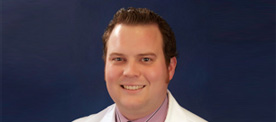
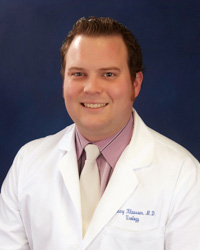
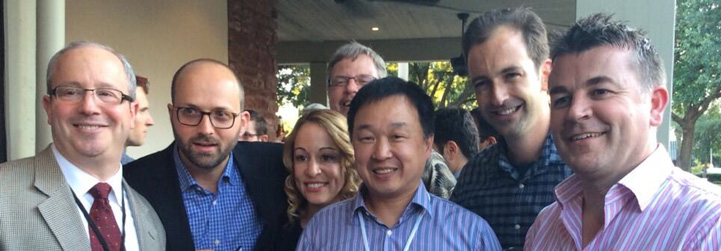
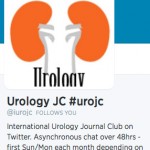
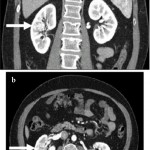
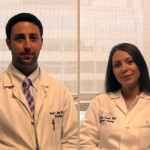
Another interesting angle that warrants consideration is the idea of academic programs as a whole engaging in social media. As patients (and ourselves) begin to acquire our news through Reddit and Twitter rather than through traditional news outlets, it’s becoming increasingly important for us to reach out to our respective patient populations where they are. Social media allows academic programs and surgical centers of excellence to self-promote, raise awareness, and reach patients in ways that were previously impossible. Program directors and department leaders should seriously consider these possibilities when considering the role of social media in their department. If the AUA, private practices, and our patients can all use Twitter to their advantage, why can’t we?
Zach – nice blog. I think the urology community is embracing social media – some more than others but I would gladly say it seems to be catching on as is evident by this week’s Early View publication in the BJUI by Wilkinson et al. My initial experience was at this years EAU in Stockholm – prior to this I was in the dark. I followed AUA and BAUS from Ireland.
While one would hope that medical graduates have the common sense on how to behave in a professional and ethical manner regarding themselves, their professional responsibilities and their patients in both a public setting and an on-line setting – there has been many discussions recently regarding the professional use of social media and guidelines have been suggested.
You have clearly outlined some of the benefits of social media and I agree it has changed how we interact and made the world an even smaller place.
Nice blog Zach – I think many would have a similar perspective. Some specialities (Emergency medicine, Intensive Care) are really embracing the educational/news potential of social media and are a long way ahead of us. Have a look at https://lifeinthefastlane.com to see how the Emergency physicians have created a very #FOAMed-focussed community.
Alex makes a good point about news – increasingly, we do not look for news. The news seeks us out through the social media platforms we use. We can therefore be relatively precise about which news gets to us (depending on who we follow), and the speed with which that news gets to us is quite amazing. The other point of difference between traditional news is how social media allows us to engage with (or even create) news like never before.
Great blog piece Zach. A great number of urologists and urology trainees could learn from you. See you on Twitter!